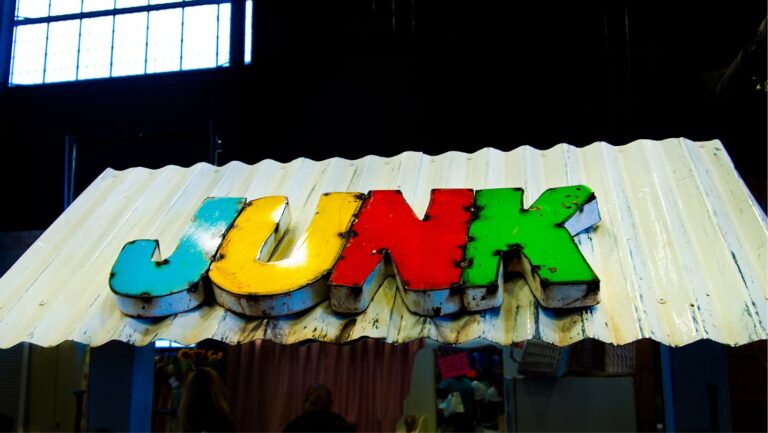Starting A Business: Professional Organizer

Professional organizers offer a variety of services that can help declutter your space and save you time.
Some of the benefits of working with a professional organizer include reducing stress and anxiety, improving mental health, and knowing exactly where everything is.
Some of the most common services include decluttering, organizing paperwork, and designing storage solutions.
If you are thinking about starting a professional organizer business, be sure to research the different services offered by professional organizers so you can provide the best possible service to your clients.
There are several services a professional organizer will provide:
- decluttering
- organizing paperwork
- designing storage solutions
- time management
Anyone can start a professional organizer business, but there are a few things you need to know before you get started. Professional organizers can help you make the most of your time by decluttering your space and organizing your belongings.
There are many benefits to hiring a professional organizer, including reducing stress and anxiety, improving mental health, and saving time.
If you are thinking about starting a professional organizer business, there are some things you need to know. Here are the steps you need to take to get started.
Marketing, networking, and Pricing Your Services

Starting your own professional organizer business can be a very rewarding experience. It can also be a lot of work, but with the right planning and execution, you can be successful. Here are some tips to help you get started.
Marketing: One of the most important aspects of any business is marketing. You need to find ways to let potential clients know about your services.
Traditional methods such as advertising in newspapers or magazines, or placing flyers in local businesses, are still effective, but you may also want to consider using online methods such as social media or search engine optimization.
Networking: Meeting other professionals in your field can help network and learn from their experiences. Attending industry events or meeting with other professional organizers can be beneficial.
Pricing: When pricing your services, it is important to remember that you are providing a valuable service that will save your clients time and stress.
It is often helpful to quote a flat fee for a project rather than charging by the hour. This allows your clients to budget for your services more easily.
The Pros and Cons of Being a Professional Organizer

Pros:
- You can help people declutter their lives and improve their mental health
- You can make a good living by helping people organize their belongings
- You can work from home
Cons:
- It can be challenging to start your own professional organizing business
- There is a lot of competition in the professional organizing industry
- You may have to work long hours to be successful
Common challenges professional organizers face:
Time management: It can be difficult to manage your time when you are working with clients who have different schedules.
Business expenses: There are a lot of potential business expenses, such as marketing, advertising, and professional development courses.
Getting organized: It can be difficult to stay organized when you are constantly dealing with other people’s belongings.
Physical challenges: Organizing can be physically challenging, especially if you are working with large or heavy items.
Emotional challenges: It can be emotionally challenging to help people declutter their lives and let go of their belongings.
Resources for Professional Organizers

Professional organizers can find resources to help them start and grow their businesses. Some of these resources include books, websites, and online courses.
Books:
The professional organizer’s Bible is “The Clutter Cure: The Total Solution for Organizing Your Home, Your Office, and Your Life” by Julie Morgenstern. This book covers everything from decluttering your home to organizing your time.
Another great resource for professional organizers is “Getting Things Done: The Art of Stress-Free Productivity” by David Allen. This book teaches you how to organize your time and tasks so that you can be more productive.
Websites:
The National Association of Professional Organizers (NAPO) website is a great resource for professional organizers. This website includes a directory of professional organizers, as well as articles and tips on organizing your home and office.
The Institute for Challenging Disorganization (ICD) also has a website that is filled with resources for professional organizers. This website includes an index of articles, a directory of professionals, and more.
Online Courses:
There are several online courses available for professional organizers. The Professional Organizer Certificate Program offered by the ICD is one such course. This program offers modules on topics such as time management, productivity, and professional development.
Another great online course is the NAPO Organizing Specialist Certificate Program. This program offers courses on decluttering, time management, and business development.
These are just a few of the many resources available to professional organizers. With a little bit of research, you can find the resources you need to start and grow your professional organizer business.
Final Thoughts
Starting your own professional organizer business can be a challenging but rewarding experience. There are many resources available to help you get started, including books, websites, and online courses, and will help you decide if starting a professional organizer business is right for you.
Bio:

Ronnie Patterson
Ronnie Patterson, founder of MagnÜron, is a multifaceted entrepreneur with a diverse background in music, electronics engineering, and engineering management. Drawing on experience across various industries, He offers expertise in SEO, operations, and strategy to help businesses thrive. Possessing a unique perspective and unwavering commitment to collaboration, and ideal partner for growth and success.






